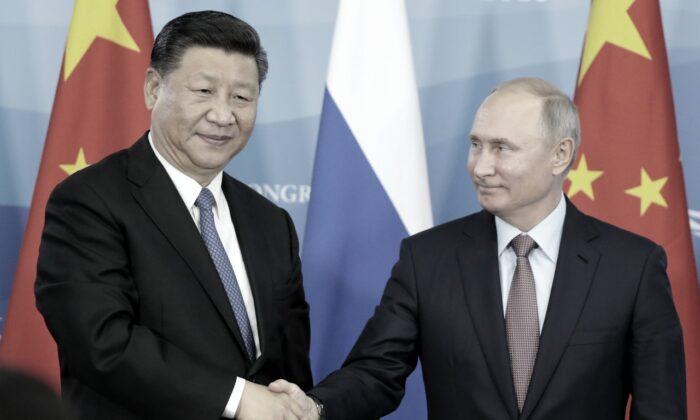History Repeating Itself?
Before we go further, a caveat is in order. It’s often said that history repeats itself, or at times, tends to rhyme. But making facile historical parallels when interpreting current events is often a trap because no two eras or event setups are identical. Each time period and event are unique.Beijing and Moscow’s Similar Interests
Both nations have similar interests. One would have to be a fool to not see it. To that point, what do both China and Russia intend to accomplish?China’s Top Priority
In China’s case, it has already acted decisively against Hong Kong, a West-facing democracy that enjoyed a special trading status with the United States and was the financial center of Asia. But under the diversion of the CCP virus pandemic, Beijing has expanded its influence in Hong Kong, arresting hundreds of democratic protesters and instituting new laws and restrictions. Today, Hong Kong is no longer free and democratic, but is effectively under the control of the Chinese Communist Party (CCP).Russia’s Play Against US Influence
Likewise, Russia sees the same weakness in the U.S. leadership. Biden is mistreating our allies and coddling our enemies in the Mideast while begging Iran to agree to a new nuclear weapons agreement. Russia is watching very carefully how this unfolds.But now, Biden’s urgency to return to the negotiating table with Tehran tells all of them, and Putin, that the United States under Biden doesn’t have the will to respond to strength with strength with regard to Iran or other nations. That fact is demonstrated in Putin’s mobilizing 40,000 troops on the Russian-Ukraine border and his concurrent warning to Biden to not interfere.
An Absent President
Such an outcome would force the United States to confront its most powerful adversaries at the same time—or not. It may well be the case that, with the apparent inability of Biden to function in a dynamic public setting, that our adversaries are convinced that there will be no consequences for either invasion.If either or both invasions occur without serious response by the United States, American prestige around the world would fall, and rightly so. This is particularly true with Taiwan, as a CCP takeover would cause doubt to spread across the Asia Pacific region. Either or both may also weaken the U.S. dollar as a reserve currency, as confidence in the United States as an active global power that protects its interests and its allies, wanes.
It is worth noting that traditional analysis of geopolitical actors typically includes three factors: intentions, capabilities and the will to realize a goal or perform an action. Those three factors apply to all nations, including the nation(s) that would oppose the provocative actions that both China and Russia are apparently contemplating.
It’s not clear that anyone in the Biden administration understands this reality, or for that matter, history.





